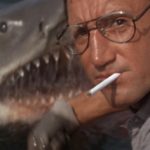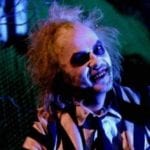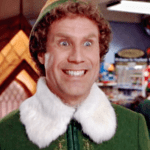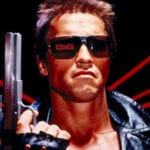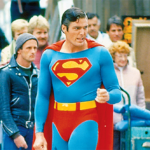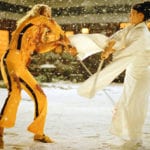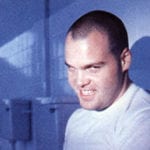 History
History  History
History  Health
Health 10 Everyday Activities That Secretly Alter Consciousness
 History
History Top 10 Historical Disasters Caused by Someone Calling in Sick
 Animals
Animals 10 New Shark Secrets That Recently Dropped
 Movies and TV
Movies and TV 10 Forgotten Realities of Early Live Television Broadcasts
 Technology
Technology 10 Stopgap Technologies That Became Industry Standards
 Weird Stuff
Weird Stuff 10 Wild Facts About Taxidermy That You Probably Didn’t Know
 Travel
Travel 10 Beautiful Travel Destinations (That Will Kill You)
 Miscellaneous
Miscellaneous 10 Modern Marriage Rituals Born from Corporate Branding
 Weird Stuff
Weird Stuff Ten Bizarre Visions of 2026 from Fiction
 History
History 10 “Modern” Problems with Surprising Historical Analogs
 Health
Health 10 Everyday Activities That Secretly Alter Consciousness
 History
History Top 10 Historical Disasters Caused by Someone Calling in Sick
Who's Behind Listverse?

Jamie Frater
Head Editor
Jamie founded Listverse due to an insatiable desire to share fascinating, obscure, and bizarre facts. He has been a guest speaker on numerous national radio and television stations and is a five time published author.
More About Us Animals
Animals 10 New Shark Secrets That Recently Dropped
 Movies and TV
Movies and TV 10 Forgotten Realities of Early Live Television Broadcasts
 Technology
Technology 10 Stopgap Technologies That Became Industry Standards
 Weird Stuff
Weird Stuff 10 Wild Facts About Taxidermy That You Probably Didn’t Know
 Travel
Travel 10 Beautiful Travel Destinations (That Will Kill You)
 Miscellaneous
Miscellaneous 10 Modern Marriage Rituals Born from Corporate Branding
 Weird Stuff
Weird Stuff Ten Bizarre Visions of 2026 from Fiction
10 Behind the Scenes Facts About Classic ’80s Movies
For many people, the 1980s is their favorite film decade, and it’s easy to see why. The stories were full of adventure, and there were creative, practical effects. In addition, the ’80s saw the birth and/or continuation of many beloved classic franchises. You could travel back in time with Marty McFly or join Luke Skywalker in a galaxy far, far away to fight the Empire. Put simply, ’80s movies are fun.
This list reveals interesting behind-the-scenes facts about some of the best films from the 1980s, including childhood classics, teen flicks, and action movies.
Related: Top 10 Creepy Scenes In Movies
10 Real Tears in E.T. the Extra-Terrestrial
Working with child actors is notoriously difficult, so Steven Spielberg had his hands full when directing E.T. the Extra-Terrestrial (1982), but he had a trick up his sleeve. Spielberg shot the film in chronological order, a rarity in Hollywood. He did this because it meant “the kids knew, emotionally, where they had been the day before, and they pretty much didn’t have any idea of where they were going the next day.” He goes on to say that when E.T. began to die, Drew Barrymore, Henry Thomas, and Robert MacNaughton “really believed that this was happening to their lives.” This emotional connection to the plot helped the kids to cry at the right moment.
Thomas, who played E.T.’s best friend Elliott, needed little help in summoning tears, though. In his audition, he was asked to do improv and was able to cry on command. His emotional performance prompted Spielberg to immediately declare that Thomas got the job.[1]
9 A Military Advisor Was Brought in for Predator
Predator (1987) was filmed in Mexico, but a week before principal photography was due to start, the cast arrived to receive military training from Gary Goldman, who was an officer in Vietnam. Director John McTiernan had told Goldman that “these guys look like a bunch of ballerinas. They don’t look like soldiers.” Goldman was brought in to run the actors through military simulations and critique their performance.
Goldman started by taking the cast on a run because while most of them had muscles, he states that “in combat, if you can’t run, you’re f—ed. It doesn’t matter how many inches your neck is.” He also taught them how to use weapons properly. Bill Duke’s character Mac carries a machine gun, and Goldman explains that “in real life, they fire in bursts of six, and you fire another burst of six, and another, and that keeps the barrel from melting.” Goldman set up the practice, and the actor fired off about “200 rounds in one thing, and Bill is just cackling like a madman.”[2]
8 Cary Elwes’s Injuries during The Princess Bride
Cary Elwes, who played Westley in The Princess Bride (1987), was first injured only a few weeks into filming. André the Giant, who played Fezzik, convinced Elwes to have a go on his ATV, but he caught his big toe between the clutch and a rock and broke it. He attempted to conceal the injury from director Rob Reiner for fear of being fired. He failed but kept his job. Elwes would put as little weight on his foot as possible when filming. It is particularly noticeable in the scene with Buttercup (Robin Wright) on top of the hill.
The second injury happened while shooting and made the final cut of the film. The scene where Count Rugen (Christopher Guest) knocks Westley out wasn’t working because Guest was being too gentle with his sword, which was a real weapon rather than a prop. Elwes convinced Guest to really go for it, but he accidentally hit him too hard. Elwes was knocked out and woke up in the hospital, still in costume, getting stitches. The doctor was the same one who treated his broken toe and remarked, “Well, Zorro! You seem to be a little accident prone, don’t you?”[3]
7 Tension on the Set of Dirty Dancing
The onscreen chemistry between Baby (Jennifer Grey) and Johnny (Patrick Swayze) is partly what makes Dirty Dancing (1987) such a classic, but onset, there was tension between the pair. Swayze had been professionally trained as a dancer, while Grey came to the movie as a complete novice and was scared to try potentially dangerous stunts (like the iconic lift). Grey describes their relationship as “a marriage where you have two opposites. He’d do anything, and I’d be scared to do anything.”
In his autobiography, Swayze went into more detail, explaining that they “had a rough start” on their first movie together, Red Dawn (1984). While they got along better during the filming of Dirty Dancing, there were still moments of friction. Swayze writes that she “seemed particularly emotional, sometimes bursting into tears if someone criticized her. And other times, she slipped into silly moods, forcing us to do scenes over again when she’d start laughing.”[4]
6 Toht’s Melting Face in Raiders of the Lost Ark
The scene in Raiders of the Lost Ark (1981) where Major Arnold Toht’s (Ronald Lacey) face melts off lives in the nightmares of many children, and they have special effects artist Chris Walas to thank for it. To achieve the effect, Walas began by sculpting Lacey’s head. He then created a gelatin that melted at a low temperature. Next, different colored layers of this gelatin were painted into the mold to act as skin, muscle, and blood. This gelatin face was then placed over a heat-resistant stone skull.
Two propane heaters were set up to melt the face while Walas “was underneath it with a heat gun with this hot gelatin dripping down on me” so that he could make “moment by moment adjustments.” The full melt took about 10 minutes but was sped up to just a few seconds for the movie. Director Steven Spielberg described it as “one of the most amazing effects I’d ever seen.”[5]
5 The Pirate Ship in The Goonies
One of the best scenes in The Goonies (1985) is when the titular group finally finds One-Eyed Willy’s ship, the Inferno. Director Richard Donner explains that production designer J. Michael Riva was determined “no matter what, to build a full-scale pirate ship.” And that is exactly what he did. The scenes with the ship in the cave were shot on Stage 16, the biggest stage Warner Bros. Studios had.
The Inferno was 138 feet long, and the tank it was built in could hold almost 2.3 million gallons of water. The ship was hidden from the child actors so that their genuine reactions could be filmed for the shot in the movie. However, the Inferno was so impressive that Josh Brolin, who played Brand, the older brother of the Goonies leader Mikey (Sean Astin), yelled “F—k!” upon seeing it and the take had to be scrapped. In an Instagram post, Brolin admits that “F—k seems, even now, totally appropriate.” Sadly, no one wanted to buy the Inferno once the film wrapped and it was destroyed.[6]
4 Martial Arts Training for The Karate Kid
The Karate Kid (1984) ends with the showdown between underdog Daniel LaRusso (Ralph Macchio) and bully Johnny Lawrence (William Zabka) at the All Valley Karate Tournament. Their match is presided over by a referee who is unfamiliar to most people but was crucial to the making of the film. That referee is Pat E. Johnson, the martial artist who served as the combat choreographer and trainer for the movie.
Johnson, who spent time training with Chuck Norris, taught Macchio and Pat Morita (Mr. Miyagi) separately from the Cobra Kais. He understood the importance of their mentor-student relationship, so he fostered that bond through his karate training. Johnson explains that “they would share their aches and pains like two little old men, and they built camaraderie through the training.” When training the Cobra Kai actors, he “would be harsh, very strict” to mirror the ruthless teachings of Sensei Kreese (Martin Cove).[7]
3 Sound Design for The Empire Strikes Back
Ben Burtt was the sound designer for the majority of the Star Wars movies and created the sound of the lightsabers, R2-D2’s beeps, and Darth Vader’s heavy breathing. He is also responsible for popularizing the Wilhelm scream. George Lucas wanted The Empire Strikes Back (1980) to be grander in scale, which meant Burtt was tasked with creating many new sounds. While most sci-fi movies used electronic sounds for a futuristic feel, Burtt filled Star Wars with natural noises.
Tauntaun sounds come from slowed-down recordings of an Asian Sea Otter, which make high-pitched squawks that almost sound like talking. The wampa’s effects were created by combining the slurping of a lion eating a cow’s head with the roar of elephants. The noise of AT-AT’s walking is a mixture of a squeaky dumpster lid, a metal shearing machine, and artillery shells exploding. Burtt’s method ensures that audiences “don’t know what it is, but they realize it is real in some way, and that illusion is a key factor for all of the sound design in Star Wars.”[8]
2 The Alien Queen in Aliens
When writing Aliens (1986), James Cameron knew that he had to bring in new elements to avoid simply rehashing the story of Ridley Scott’s Alien (1979). He thought that the adult alien form we see in the first movie “couldn’t possibly have laid the thousand or so eggs that filled the inside of the derelict ship.” This led to him creating and designing the alien queen, which was brought to life with the help of special effects artist Stan Winston.
Cameron came up with the idea of suspending a puppet from a crane and then having two puppeteers inside to operate it. Other elements of the puppet would be controlled through external wires and hydraulics. Winston created a prototype queen made of brooms and garbage bags to test the idea. The final puppet was made out of a lightweight polyfoam, stood 14 feet tall, and was hung on a variety of rigs depending on the shot. There were up to eight operators, and they had to work completely in sync to create an organic feeling performance.[9]
1 Recasts in Back to the Future
It feels unimaginable that anyone other than Michael J. Fox could have been Marty McFly in Back to the Future (1985), but the role was originally played by Eric Stoltz. Writer and director Robert Zemeckis had his heart set on casting Fox, but at the time, the actor was filming Family Ties. Gary Goldberg, the series creator, told Zemecjis that Fox was too busy. So Stoltz was cast instead, but after a few weeks of filming, he was fired for not bringing enough humor to the character.
Zemeckis reached out to Fox again, and he agreed to take the role, resulting in a horrendous work schedule as he filmed for the movie and TV show simultaneously. Fox explains that he only slept about three or four hours each night for the three or four months required for filming. As a result, Fox noted that “I really, truly thought I was terrible.” Recasting McFly also meant recasting his girlfriend, Jennifer, who was played by Melora Hardin when Stoltz was involved. Hardin was let go before she even filmed any scenes because Zemeckis and his co-writer Bob Gale felt that she was too tall to star opposite Fox. The shorter Claudia Grace Wells was brought in to replace her.[10]

